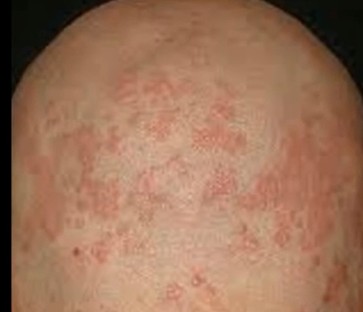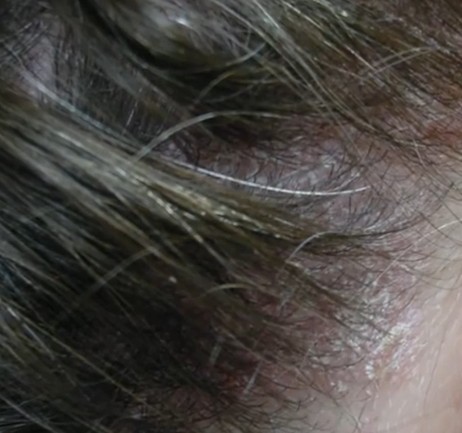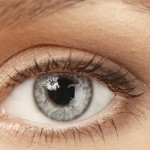Just like the face, back, neck and other areas of the body, the scalp can also get affected by pimples. Scalp also consists of skin, with the only difference being that it is fully enclosed in hair. Similarly, the hair follicles on scalp also consist of oil-secreting oil glands. The eliminated oil comes onto the surface via tiny pores.These pores can get blocked due to varied causes and obstruct the oil from getting out.This results in buildup of oil in the hair follicle leading to the inflammation of the hair follicle and the adjacent regions.
Pimples on scalp is an uncommon condition and can vary in severity levels. A severe case of scalp pimples is referred to as acne necrotica miliaris, or acne frontalis, or acne varioliformis, while mild instances are known as scalp folliculitis. Varied underlying diseases can also cause pimples on scalp.
Symptoms of pimples on scalp
Some of the signs and symptoms accompanying pimples on scalp are listed below:
- Pimples on scalp is often a discomforting and annoying condition because of the constant pain and itchiness. However, as they are covered in hair, they are not that easily visible to the patient and others. Scalp pimples tend to fade away on their own after the accumulated oil gets out.
- In case the oil deposits are unable to find their way out, then the hair follicles are increased risk to infection by propionibacterium acne bacteria, which then feed on the sebum or oil deposits and quickly multiply. In reaction, the body’s immune system sends additional WBCs to the region to fight the infection. The action of the white blood cells results in release of chemicals and increased amounts of dead bacteria on that region, eventually leading to redness, inflammation, and development of pustules.
- Serious infections can also migrate to the adjacent regions.
- Pimples on scalp appear the same as any other kind of acne. It occurs as tiny pustules all over the scalp. Pimples occurring on the anterior part of the hairline are easily noticeable to others. This can cause embarrassment and worry in the affected individual and even lower his/her self-esteem.
- Irritation of the skin and itchiness of the scalp can cause the affected person to scratch incessantly to find relief. Scratching can aggravate the condition and result in an unhealthy and crusty appearance of the pimples on scalp. It can also cause a lot of pain.
Causes
- The main cause of pimples on scalp is blocked hair follicles, which in turn can arise due to varied factors such as:
- Following poor scalp hygiene like keeping the hair unwashed for many days.
- High levels of stress can increase the risk to scalp pimples.
- Hormonal imbalances. Teenagers tend to experience hormonal imbalances at the time of puberty and hence are most vulnerable to development of acne as well as pimples on scalp.
- Some individuals may not be able to easily adapt to the changing seasons and develop scalp pimples due to that.
- Intake of deficient nutrients or an imbalanced diet.
- Some individuals may adversely react to the toxicity occurring in steroids and other such drugs, thereby experiencing pimples on scalp as a side effect.
- The use of certain hair care products can also cause allergic reactions of the scalp.
- Increased consumption of coffee or beverages and drinks with high caffeine content is another cause.
- Food allergies, sensitivity to certain foods like chemicals present in some spices can also give rise to pimples on scalp.
- Increased perspiration of the head can provide an ideal, moist environment for bacteria to flourish and cause pimples on scalp.
- Staph bacteria; mites, i.e., demodex folliculorum mite; and yeast belonging to the Malassezia species family can also live and flourish on the scalp causing scalp pimples.
- Infection by staph bacteria can cause severe scalp pimples.
- Scalp pimples caused by yeast infection can cover the entire crown area and require medical treatment for curing it.
- A family history of pimples on scalp can increase the risk towards developing the condition.
Treatment
Minor instances of pimples on scalp typically vanish without treatment after a few days, while severe cases may need medical attention.
- Mild instances of pimples on scalp that itch can be treated by using OTC topical solutions like benzoyl peroxide or salicylic acid. The latter is regarded to be a safer option as the former can cause many side effects such as bleaching, hair loss, and irreparable hair damage.Sulfur products are also not recommended for treating pimples on scalp as they can result in side effects.
- Use of anti-dandruff shampoos along with an efficient conditioner is another way to get rid of scalp pimples.
- Patients suffering from a chronic case of painful scalp pimples should consult a doctor, who may then prescribe topical antibiotics or oral and topical antibiotics to cure the pimples.
- Maintaining proper scalp hygiene is the best way to prevent the formation of pimples on scalp.
Pictures




